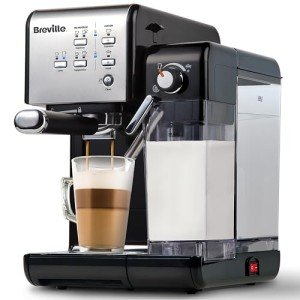The Rise of Home Espresso Machines: A Comprehensive Guide
As coffee lovers continue to seek fresh and tasty brews in your home, the appeal of home espresso machines has actually surged recently. No longer simply the domain of cafes and coffee stores, these machines empower individuals to craft barista-quality espresso beverages from the convenience of their kitchen areas. This article will explore the numerous kinds of home espresso machines, their functions, and considerations for selecting the right one. Furthermore, it will supply a choice of FAQs to assist potential purchasers make informed decisions.
Types of Home Espresso Machines
Home espresso machines can be categorized into a number of classifications based on their systems and user-friendliness. Each type has its distinct features, pros, and cons.
| Type | Description | Pros | Cons |
|---|---|---|---|
| Manual Espresso Machines | Requires the user to manually manage the developing process, involving strategies like pulling a lever to produce pressure. | - Complete control over developing procedure - Compact style | - Requires skill and practice - Time-consuming |
| Semi-Automatic Machines | Machine automates water circulation and pressure, but the user still controls the dosing and duration of the brewing process. | - Balance of automation and control - Versatile | - Learning curve for improving techniques |
| Totally Automatic Machines | Automates the entire brewing process, from grinding to developing, frequently with programmable settings for personalized beverages. | - Extremely user-friendly - Quick and convenient | - Less control over the developing procedure - Higher rate point |
| Capsule or Pod Machines | Uses pre-packaged espresso pills or pods to produce coffee quickly and quickly. | - Extremely easy to use - Minimal clean-up | - Limited flavor range - More pricey per cup than ground coffee |
| Super-Automatic Machines | Combines features of totally automatic machines with built-in grinders, enabling users to brew entire bean espresso and milk-based beverages with one touch. | - All-in-one convenience - Ideal for milk-based beverages | - Often the most pricey - Can be large |
Features to Consider
When selecting a home espresso machine, potential purchasers should consider the following functions to guarantee they select a machine that fulfills their needs:
Grinder Type:
- Built-in grinders can provide fresher premises but may need more upkeep.
- Separate grinders permit more personalization of grind size.
Pressure:
- Look for machines that produce at least 9 bars of pressure, which is optimum for developing espresso.
Water Temperature Control:
- Machines with adjustable temperature settings allow for much better extraction of flavor from beans.
Milk Frothing Options:
- Consider whether you want a manual steam wand for frothing or an automatic milk frother for benefit.
Alleviate of Cleaning:
- Machines with removable parts and self-cleaning functions substantially reduce clean-up time.
Size and Design:
- Ensure the machine fits conveniently in your cooking area and lines up with your visual choices.
Budget:
- Set a budget before starting your search, as costs can vary substantially from affordable models to high-end machines.
Advantages of Home Espresso Machines
Owning a home espresso machine offers many benefits:
- Cost-Effective: Over time, brewing espresso at home can save coffee lovers money compared to frequent café sees.
- Personalization: Users can experiment with different beans, grind sizes, and brewing strategies to discover their best cup.
- Convenience: The ability to brew espresso any time gets rid of the requirement to head out to a café, particularly useful during late nights or early mornings.
- Quality Control: With a home machine, people have complete control over the quality of components and developing processes.
Downsides of Home Espresso Machines
However, there are some downsides to think about:
- Initial Investment: High-quality espresso machines can be pricey, requiring a considerable upfront investment.
- Learning Curve: Mastering the art of espresso brewing can require time and practice, which may be daunting for novices.
- Upkeep: Like any device, espresso machines need regular cleansing and maintenance to guarantee optimal performance.
Frequently asked questions
1. What is the best type of home espresso machine for beginners?
Answer: For novices, a semi-automatic machine is often recommended as it provides a balance between control and automation, permitting you to discover the basics without frustrating complexity.
2. Just how much should I invest in a home espresso machine?
Response: Entry-level machines can begin around ₤ 100 to ₤ 300, while higher-end models can vary from ₤ 500 to over ₤ 2000. It's vital to set a budget based upon your expected usage and wanted functions.
3. Do I need a different grinder?
Answer: While some espresso machines feature integrated grinders, buying a separate grinder permits greater personalization and guarantees much better quality grounds.
4. How frequently should White Espresso Machines clean my espresso machine?
Answer: Cleaning frequency can vary by machine type, however it's usually suggested to clean up the machine after each use and carry out deep cleansings weekly or month-to-month, depending on usage.
5. Can I make milk-based beverages with any espresso machine?
Response: Not all machines include milk frothing capabilities. If you enjoy beverages like lattes or cappuccinos, search for a machine with a steam wand or automatic frother.
Home espresso machines are transforming the method coffee fanatics enjoy their precious brews. With different types and advanced features readily available in the market, there is something for everyone. Whether it's the pleasure of creating distinct dishes or merely enjoying the ideal shot of espresso, purchasing a home espresso machine can boost both the coffee-drinking experience and the lifestyle for coffee fans all over. Just like any financial investment, it is important to weigh the benefits against the possible disadvantages and select a machine that flawlessly fits both your lifestyle and preferences.

